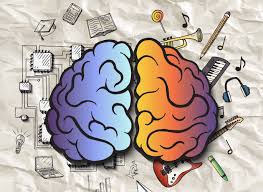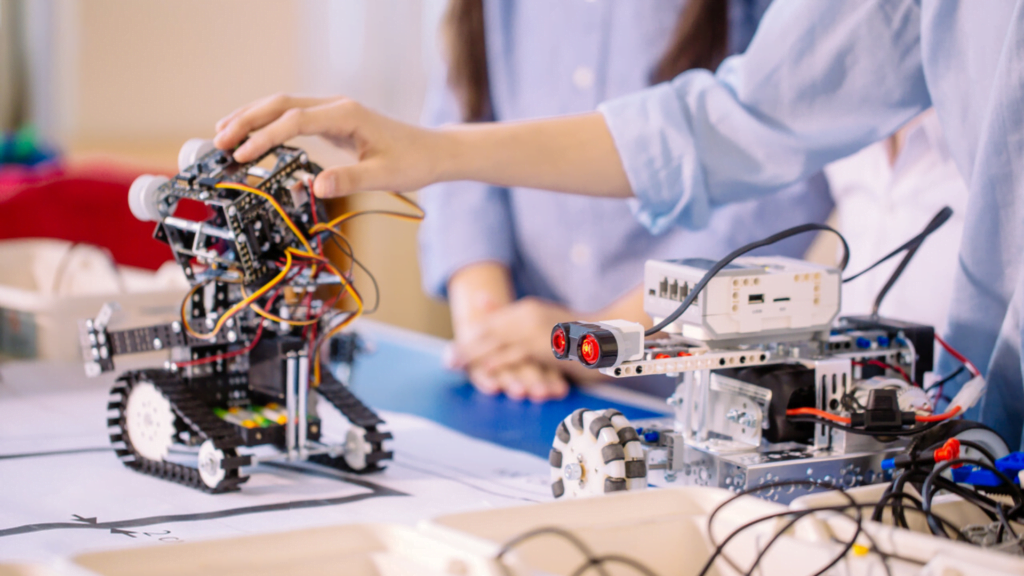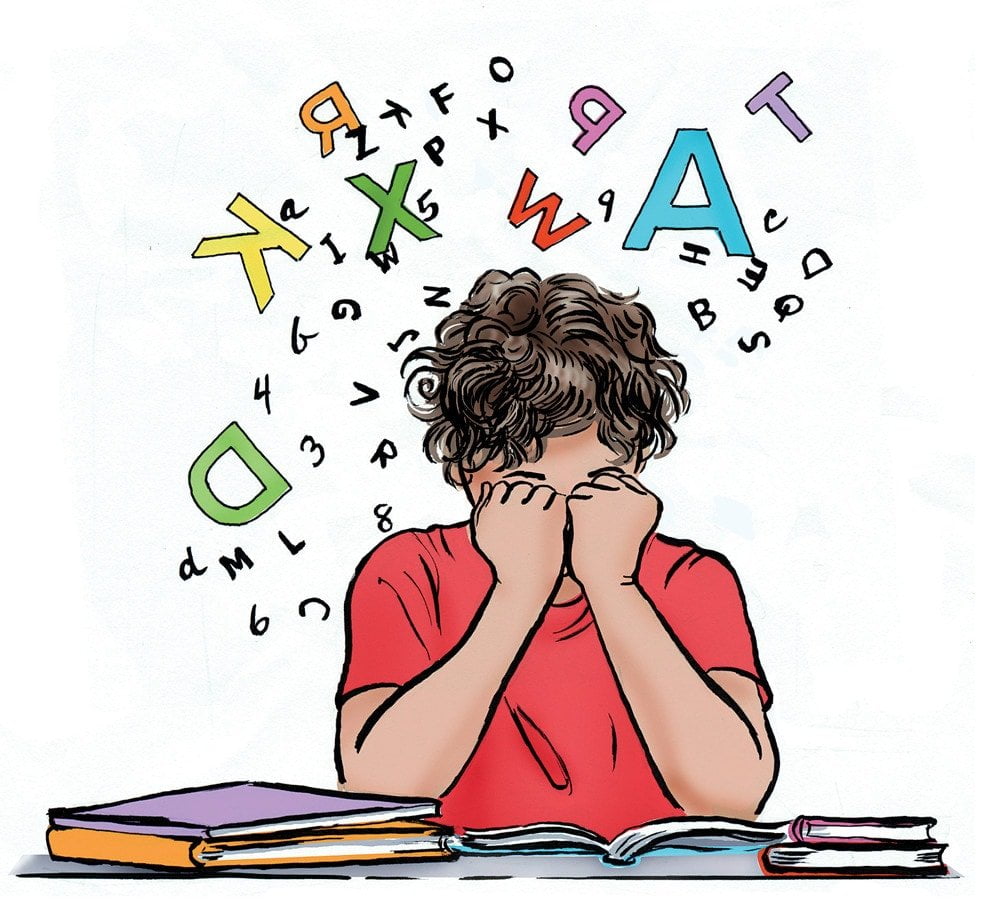In today’s fast-paced and interconnected world, being equipped with a wide range of intelligence is more important than ever. From effectively communicating ideas to solving complex problems, our intelligence plays a crucial role in shaping our success. In this blog post, we will explore the different types of intelligence and how they can be developed and nurtured to enhance various skills. Whether you’re looking to excel in communication, problem-solving, visual and design abilities, physical activities, or relationship-building, understanding and harnessing these different forms of intelligence will empower you to thrive in both personal and professional realms.
Verbal Intelligence: Enhancing Communication Skills
Verbal Intelligence is one of the many types of intelligence that plays a crucial role in enhancing communication skills. It refers to the ability to use and understand language effectively, which includes both speaking and listening skills. When individuals possess strong verbal intelligence, they are able to express their thoughts and ideas clearly and concisely, while also understanding and interpreting the messages of others. This form of intelligence enables individuals to articulate themselves in various situations, whether it be in personal interactions, professional settings, or even through written communication.
One way to develop and improve verbal intelligence is by actively engaging in activities that promote language skills. Reading books, newspapers, and articles on a wide range of topics can enhance vocabulary and comprehension. Additionally, participating in debates or public speaking engagements can sharpen communication skills and foster confidence in articulating ideas. Taking courses or workshops in writing or public speaking can also provide valuable tools and techniques for effective communication.
A key aspect of verbal intelligence is the ability to actively listen and understand others. This involves paying attention to verbal cues, nonverbal communication, and being receptive to different perspectives. By actively listening, individuals can strengthen their understanding of others and foster meaningful connections. Engaging in conversations, asking questions, and seeking clarification are effective strategies to develop active listening skills.
- Verbal fluency is a significant component of verbal intelligence. It refers to the ability to articulate thoughts and ideas quickly and effortlessly. Individuals with a high level of verbal fluency often have a wide range of vocabulary and can express themselves fluently in different contexts.
- Verbal comprehension is the ability to understand and interpret language effectively. This includes understanding the meaning of words, phrases, and statements, as well as grasping the intended message behind them.
- Verbal expression involves the effective communication of thoughts and ideas through spoken or written language. It encompasses skills such as clarity, coherence, and organization of one’s communication.
In conclusion, verbal intelligence plays a crucial role in enhancing communication skills. Developing and nurturing this type of intelligence enables individuals to express themselves effectively, understand others, and establish meaningful connections. By actively engaging in activities that promote language skills and actively listening to others, individuals can enhance their verbal intelligence and ultimately improve their communication abilities.
Logical-Mathematical Intelligence: Developing Problem-Solving Abilities
In today’s fast-paced and complex world, problem-solving abilities have become more important than ever. Whether it’s finding solutions to everyday challenges or tackling complex issues in various fields, having strong logical-mathematical intelligence can significantly enhance our problem-solving skills. This type of intelligence involves the ability to analyze, reason, and think critically. It is often associated with individuals who excel in logical reasoning, mathematical calculations, and scientific thinking.
One of the key aspects of developing logical-mathematical intelligence is cultivating a logical mindset. This involves thinking in a systematic and organized manner, breaking down problems into smaller components, and identifying patterns and relationships. By approaching problems with a logical framework, individuals with this type of intelligence can efficiently analyze the situation and devise effective solutions.
Furthermore, honing mathematical skills can also contribute to the development of problem-solving abilities. Mathematics provides a structured and logical approach to problem-solving, encouraging individuals to think logically, make connections, and apply various mathematical concepts to real-life situations. Practicing mathematical problems and puzzles can help strengthen logical-mathematical intelligence and expand one’s problem-solving skills.
- Engaging in activities that involve critical thinking and logical reasoning, such as puzzles, riddles, or strategy games, is an excellent way to nurture logical-mathematical intelligence.
- Collaborating with others who have different perspectives and approaches can foster the development of problem-solving abilities. By working in teams or participating in group discussions, individuals can learn to consider multiple viewpoints and come up with innovative solutions.
- Utilizing technology and digital tools can also enhance logical-mathematical intelligence. There are numerous online resources, educational apps, and interactive platforms available that offer engaging activities and challenges to develop problem-solving skills.
In conclusion, logical-mathematical intelligence plays a crucial role in developing problem-solving abilities. By nurturing a logical mindset, honing mathematical skills, and engaging in activities that stimulate critical thinking, individuals can enhance their ability to analyze, reason, and solve problems effectively. With logical-mathematical intelligence, one can navigate through the complexities of the modern world and approach challenges with confidence and efficiency.
| Key Points: |
|---|
| Logical-mathematical intelligence involves the ability to analyze, reason, and think critically. |
| Cultivating a logical mindset and practicing mathematical skills are essential for developing problem-solving abilities. |
| Engaging in activities that involve critical thinking and reasoning, collaborating with others, and utilizing technology can enhance logical-mathematical intelligence. |
| With logical-mathematical intelligence, individuals can approach challenges with confidence and efficiency in the modern world. |
Spatial Intelligence: Nurturing Visual And Design Skills
Spatial Intelligence refers to the ability to understand, visualize, and mentally manipulate objects and spaces in our surroundings. It involves being able to perceive, analyze, and create visual representations of our environment. This type of intelligence plays a crucial role in various areas of life, from architecture and engineering to art and design. Developing and nurturing spatial intelligence can enhance our visual and design skills, allowing us to effectively communicate and create aesthetically pleasing and functional designs.
There are several ways to nurture and enhance spatial intelligence. One effective method is through practicing spatial visualization exercises. These exercises involve mentally rotating objects or visualizing their different perspectives. Engaging in activities such as puzzles, building blocks, and model making can greatly contribute to improving spatial intelligence.
Another way to nurture spatial intelligence is by exploring and interacting with our environment. When we actively observe and analyze our surroundings, we train our brains to perceive and understand spatial relationships. Taking up hobbies such as photography, sketching, or playing video games that require navigating virtual environments can significantly boost our spatial intelligence.
- Engaging in hands-on activities like building models or assembling furniture also helps in enhancing spatial intelligence. These activities involve using our hands to manipulate objects in space, which allows us to develop a better understanding of three-dimensional relationships. Additionally, practicing drawing or painting can improve our visual perception and spatial awareness.
Incorporating technology into our learning process can also be beneficial for nurturing spatial intelligence. There are various interactive software and online platforms available that offer virtual simulations and visualizations, allowing users to engage in spatial reasoning exercises. These tools provide an immersive and interactive learning experience, helping individuals develop and sharpen their visual and design skills.
In conclusion, nurturing spatial intelligence is crucial for enhancing our visual and design skills. By practicing spatial visualization exercises, actively engaging with our environment, involving ourselves in hands-on activities, and utilizing technology, we can nurture our spatial intelligence and unlock our potential for creating and understanding visual representations. Developing spatial intelligence not only enables us to excel in fields such as architecture and design but also enhances our problem-solving abilities and overall cognitive development.
| Type of Intelligence | Key Aspects |
|---|---|
| Spatial Intelligence | Nurturing Visual and Design Skills |
| Verbal Intelligence | Enhancing Communication Skills |
| Logical-Mathematical Intelligence | Developing Problem-Solving Abilities |
| Bodily-Kinesthetic Intelligence | Mastering Physical Abilities |
| Interpersonal Intelligence | Fostering Relationship-Building Skills |
Bodily-Kinesthetic Intelligence: Mastering Physical Abilities
Our intelligence is not limited to just our cognitive abilities or academic knowledge. There are various types of intelligence that encompass different aspects of human potential. One such type is bodily-kinesthetic intelligence, which involves the ability to control and coordinate movements, as well as manipulate objects with precision and ease.
Individuals with high bodily-kinesthetic intelligence often excel in activities that require physical skills and dexterity. This could include sports, dance, martial arts, and any other form of physical activity that demands control over body movements. These individuals have a heightened awareness of their bodies and possess excellent hand-eye coordination.
Developing bodily-kinesthetic intelligence is not only beneficial for mastering physical activities but also has a positive impact on various other areas of life. For instance, individuals with this type of intelligence tend to have a greater sense of body confidence and self-expression. They are able to express themselves physically, using movements and gestures to convey meaning and emotions.
- Additionally, mastering physical abilities can enhance one’s overall cognitive functioning. Research has shown that engaging in physical activities stimulates the release of endorphins, which can improve mood and cognitive performance. Regular exercise and physical training have been linked to increased concentration, focus, and mental agility.
Furthermore, bodily-kinesthetic intelligence plays a crucial role in many professions and careers. Athletes, dancers, surgeons, and actors, for example, heavily rely on their physical abilities to excel in their respective fields. These individuals have honed their bodily-kinesthetic intelligence through extensive practice and training, allowing them to perform tasks with precision and efficiency.
| Key characteristics of individuals with high bodily-kinesthetic intelligence: | Activities that enhance bodily-kinesthetic intelligence: |
| Exceptional hand-eye coordination | Participating in sports |
| Awareness of body movement and positioning | Taking up dance classes |
| Physical expressiveness | Practicing martial arts |
| Excellent motor skills | Engaging in activities that require fine motor control |
In conclusion, bodily-kinesthetic intelligence is a valuable type of intelligence that focuses on mastering physical abilities. It allows individuals to excel in activities that require physical dexterity, enhances cognitive functioning, and offers numerous career opportunities in fields that heavily rely on physical skills. Whether you are naturally inclined towards physical activities or wish to improve your bodily-kinesthetic intelligence, there are various ways to nurture and develop this aspect of your intelligence. So, embrace your physical abilities and explore the world of possibility that awaits!
Interpersonal Intelligence: Fostering Relationship-Building Skills
Interpersonal intelligence, also known as social intelligence, refers to the ability to understand and interact effectively with others. It involves being sensitive to and understanding the emotions, motivations, and intentions of others, as well as being able to communicate and build relationships. This type of intelligence plays a crucial role in fostering relationship-building skills and establishing strong connections with others.
One way to foster interpersonal intelligence and enhance relationship-building skills is through active listening. Active listening involves not only hearing what someone is saying, but also fully engaging and understanding their message. This can be done by maintaining eye contact, nodding and providing verbal cues, and asking clarifying questions. By actively listening, you show respect and empathy towards others, which can strengthen your relationships.
Another way to develop interpersonal intelligence is by practicing effective communication skills, both verbal and non-verbal. Verbal communication includes the use of clear and concise language, tone of voice, and appropriate use of gestures and facial expressions. Non-verbal communication, on the other hand, involves body language, posture, and facial expressions. Being aware of and using these communication skills can help you express yourself effectively and understand others better.
- Additionally, empathy is a crucial aspect of interpersonal intelligence. Empathy is the ability to understand and share the feelings of others. It allows you to put yourself in someone else’s shoes and view situations from their perspective. By cultivating empathy, you can develop stronger connections with others, as it shows that you genuinely care about their well-being and emotions.
| Types of Intelligence |
|---|
| Verbal Intelligence |
| Logical-Mathematical Intelligence |
| Spatial Intelligence |
| Bodily-Kinesthetic Intelligence |
| Interpersonal Intelligence |
- Lastly, building strong relationships requires effective conflict resolution skills. Conflict is a natural part of any relationship, and being able to resolve conflicts in a healthy and respectful manner is crucial for maintaining positive connections. Developing skills such as active listening, empathy, and effective communication can greatly contribute to resolving conflicts and fostering healthy relationships.
In conclusion, fostering interpersonal intelligence and relationship-building skills is essential for navigating social interactions and establishing meaningful connections with others. By actively listening, developing effective communication skills, cultivating empathy, and practicing conflict resolution, you can enhance your interpersonal intelligence and nurture strong and fulfilling relationships.






